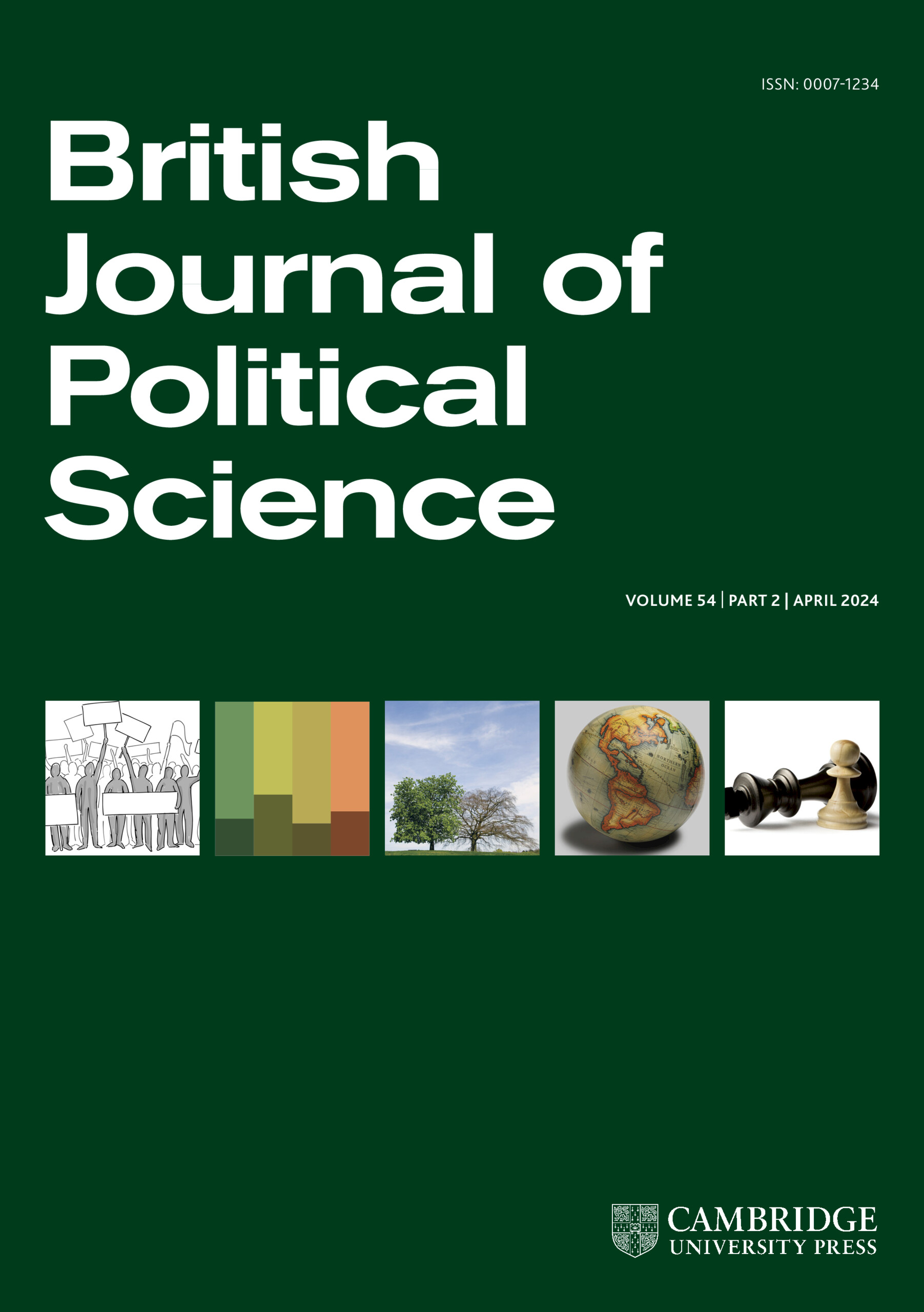立法资源、腐败和在任
IF 4.6
1区 社会学
Q1 POLITICAL SCIENCE
引用次数: 1
摘要
一些立法机构的议员有着漫长的政治生涯,而其他地方的人员流动却很猖獗。这种变化是必然的,因为高任职率的议会可能以牺牲社会代表性为代价来促进立法专业知识。我们通过确定有利于现任者的立法资源等“供应”条件,以及影响选民连任意愿的政治腐败等“需求”条件,来探讨连任率的跨国差异。我们假设,立法特权有助于现任者赢得连任,但前提是公众对政治的信心相对较高,这反映在低腐败水平上。我们使用OLS和工具变量回归以及68个民主国家(2000-2008年)的新全球数据来测试我们的论点,这些国家涵盖288次选举和55000多名立法者。我们发现,只有在政治腐败程度相对较低的情况下,立法资源才能帮助现任者连任。相比之下,在严重腐败的情况下,这些资源会降低连任率。本文章由计算机程序翻译,如有差异,请以英文原文为准。
Legislative Resources, Corruption, and Incumbency
Members of some legislatures enjoy long political careers, whereas elsewhere turnover is rampant. This variation is consequential since high-incumbency assemblies may facilitate legislative expertise at the expense of social representation. We explore cross-national differences in re-election (incumbency) rates by identifying ‘supply’ conditions such as legislative resources that benefit incumbents as well as ‘demand’ conditions such as political corruption that affect voters' willingness to re-elect incumbents. We hypothesize that legislative perquisites help incumbents win re-election, but only if there is relatively high public confidence in politics, as reflected in low corruption levels. We tested our argument using OLS and instrumental variable regression and new global data on sixty-eight democracies (2000–18) covering 288 elections and over 55,000 legislators. We found that legislative resources help incumbents get re-elected only under relatively low levels of political corruption. In contrast, under severe corruption, such resources can depress re-election rates.
求助全文
通过发布文献求助,成功后即可免费获取论文全文。
去求助
来源期刊

British Journal of Political Science
POLITICAL SCIENCE-
CiteScore
8.70
自引率
4.00%
发文量
64
期刊介绍:
The British Journal of Political Science is a broadly based journal aiming to cover developments across a wide range of countries and specialisms. Contributions are drawn from all fields of political science (including political theory, political behaviour, public policy and international relations), and articles from scholars in related disciplines (sociology, social psychology, economics and philosophy) appear frequently. With a reputation established over nearly 40 years of publication, the British Journal of Political Science is widely recognised as one of the premier journals in its field.
 求助内容:
求助内容: 应助结果提醒方式:
应助结果提醒方式:


